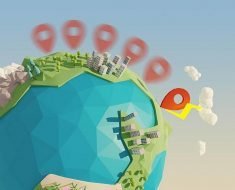In the first years of life, a child’s brain produces more than 1 million neural connections a second.
Researchers are beginning to understand how our brain’s development is influenced by things that happen to us in these very early years.
Our earliest experiences can have lifelong impacts on how we learn and behave and even our physical wellbeing in later life.
Enter infant mental health.
This multidisciplinary field aims to support the emotional and social development of children aged 0 to 3, according to psychologist and WA president of the Australian Association for Infant Mental Health Jenna Thornton.
“Essentially, it’s about supporting children to form close and secure relationships with their caregivers and their peers,” she says, “helping children to experience, manage, as well as express a whole range of emotions—both comfortable and uncomfortable—and also to help them explore their environment and to learn.”
Too young?
Jenna says there’s a common misconception that babies and young children are too young to have genuine emotional and social needs.
“It’s absolutely important for their physical needs to be met by their caregivers,” Jenna says.
“Attachment theory reminds us that it’s also vitally important that we hold in mind and respond to their emotional needs.”
Jenna says good mental health in the early years provides children with the self-confidence to manage their emotions, develop strong relationships and learn successfully.
“But they really can’t do that alone,” she says.
A child’s eye view
So what does that look like?
https://youtube.com/watch?v=ZeEKLECvh9g%3Fcolor%3Dwhite
For a crying baby, it might mean holding and soothing them, even if you can’t work out why they’re upset, Jenna says.
“We know that, when we respond in a calm and caring manner and we help them to manage their feelings, over time, they learn how to do this for themselves as they grow older,” she says.
For a toddler, it starts with being open to the child’s perspective.
“What’s very upsetting and distressing to a 2-year-old might not be the same as an adult,” Jenna says.
Jenna says that, within the context of caregiving relationships, it helps for “a bigger, kinder, stronger, wiser adult” to help name and validate the child’s emotions.
It’s also good to link the child’s emotions to an event so their feelings make sense and they feel safe and secure.
That might sound like: “You feel angry because Joey stole your toy. I’d feel really angry too if that was me”.
“It’s OK to be angry. It’s a big feeling, and I’m going to stay with you until you feel OK again.”
Feeling safe in the world
Jenna says babies are ready to connect with us from the moment they’re born.
And she says children’s brains grow better with warm, positive and sensitive relationships.
“These secure and trusting relationships that they build with their caregivers are really crucial in helping them lay a strong foundation for their later development,” Jenna says.
Source: Read Full Article





